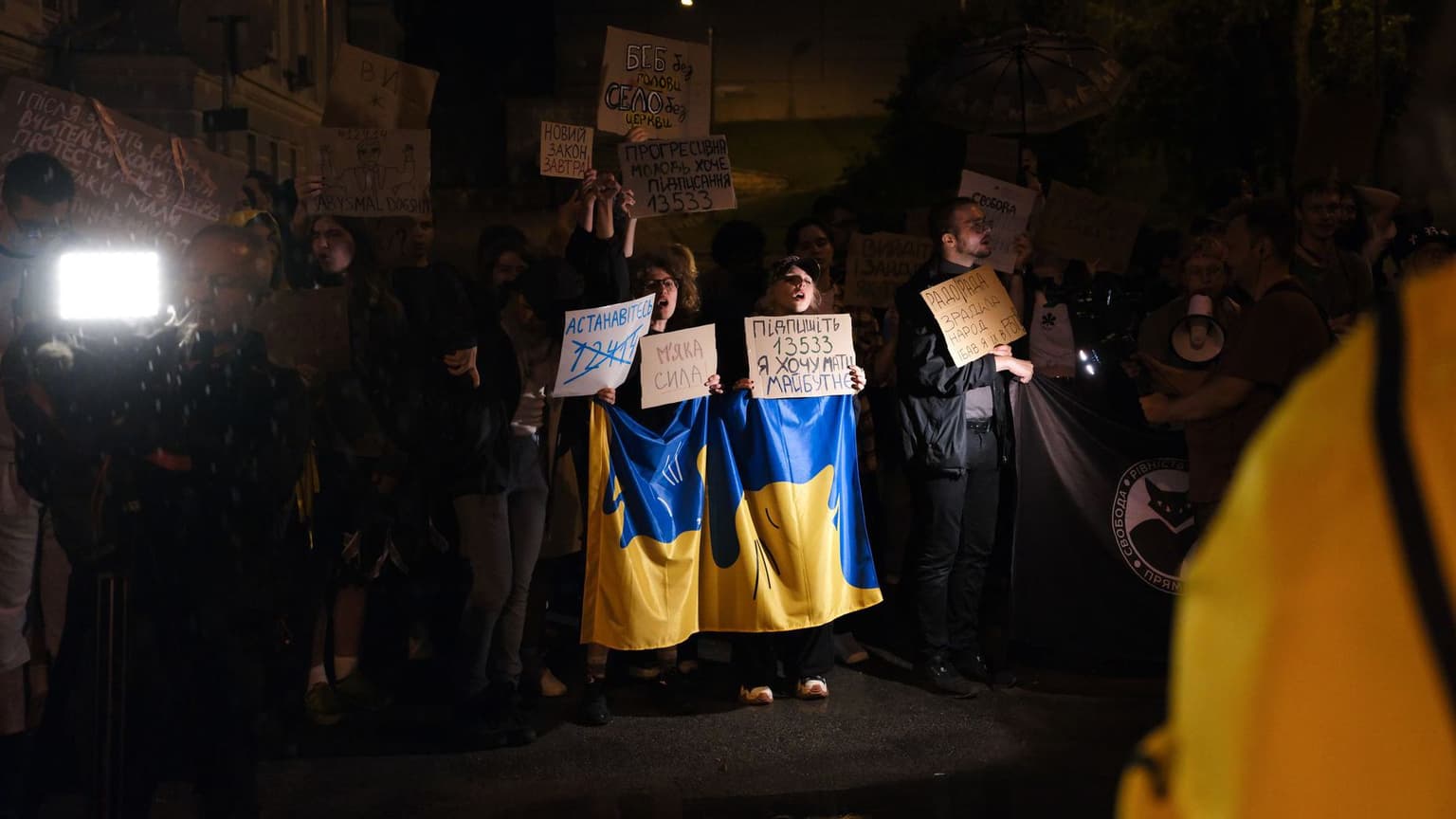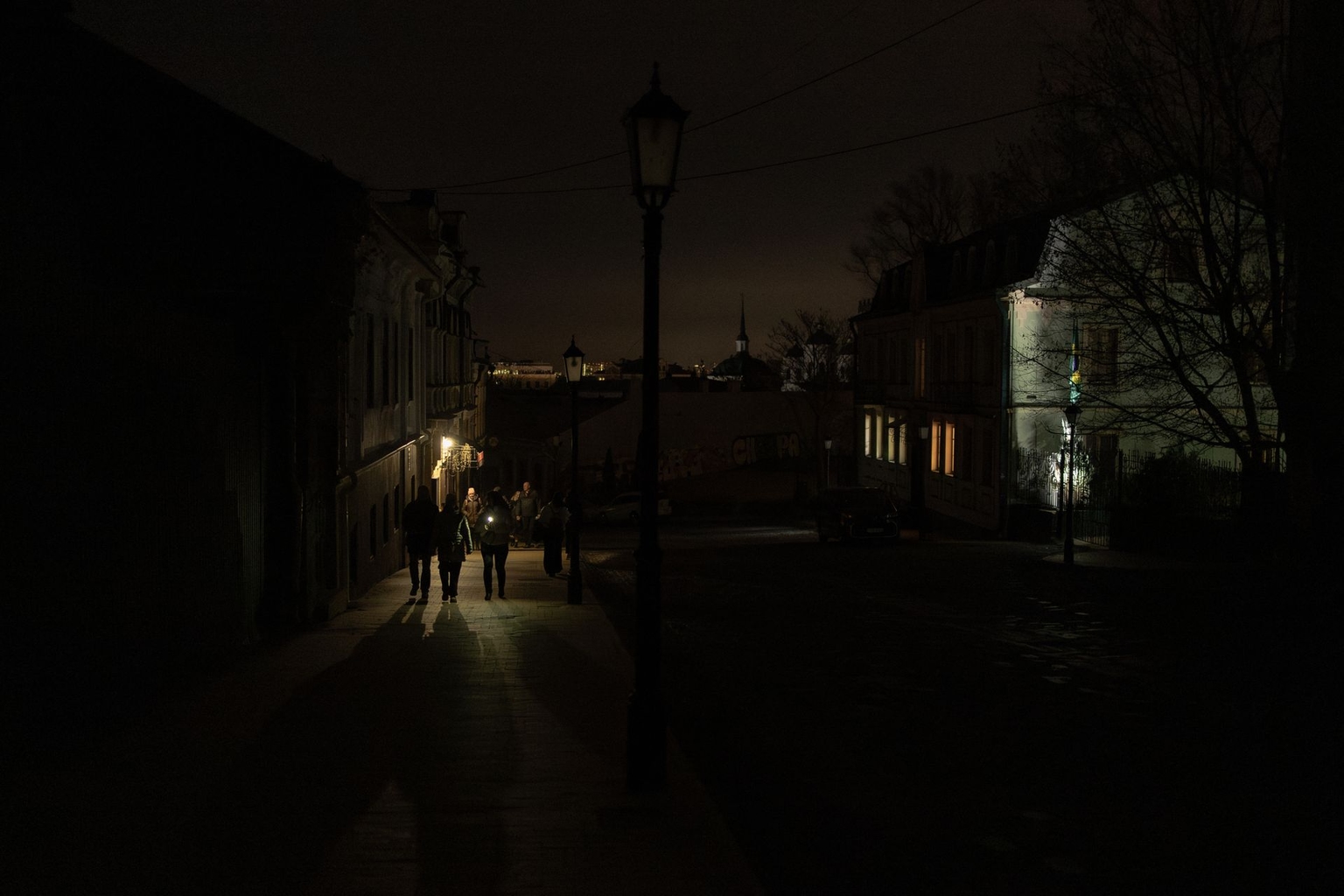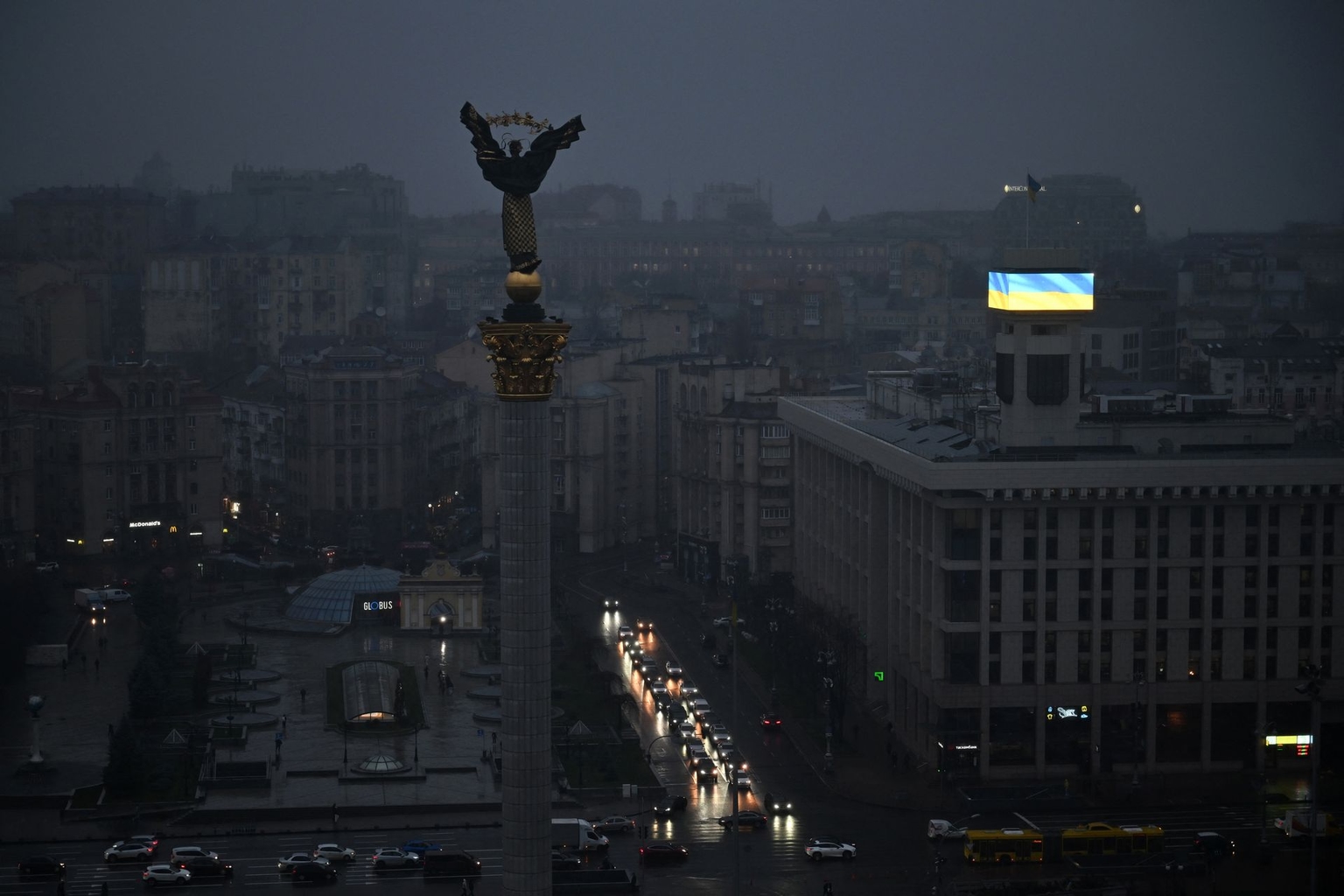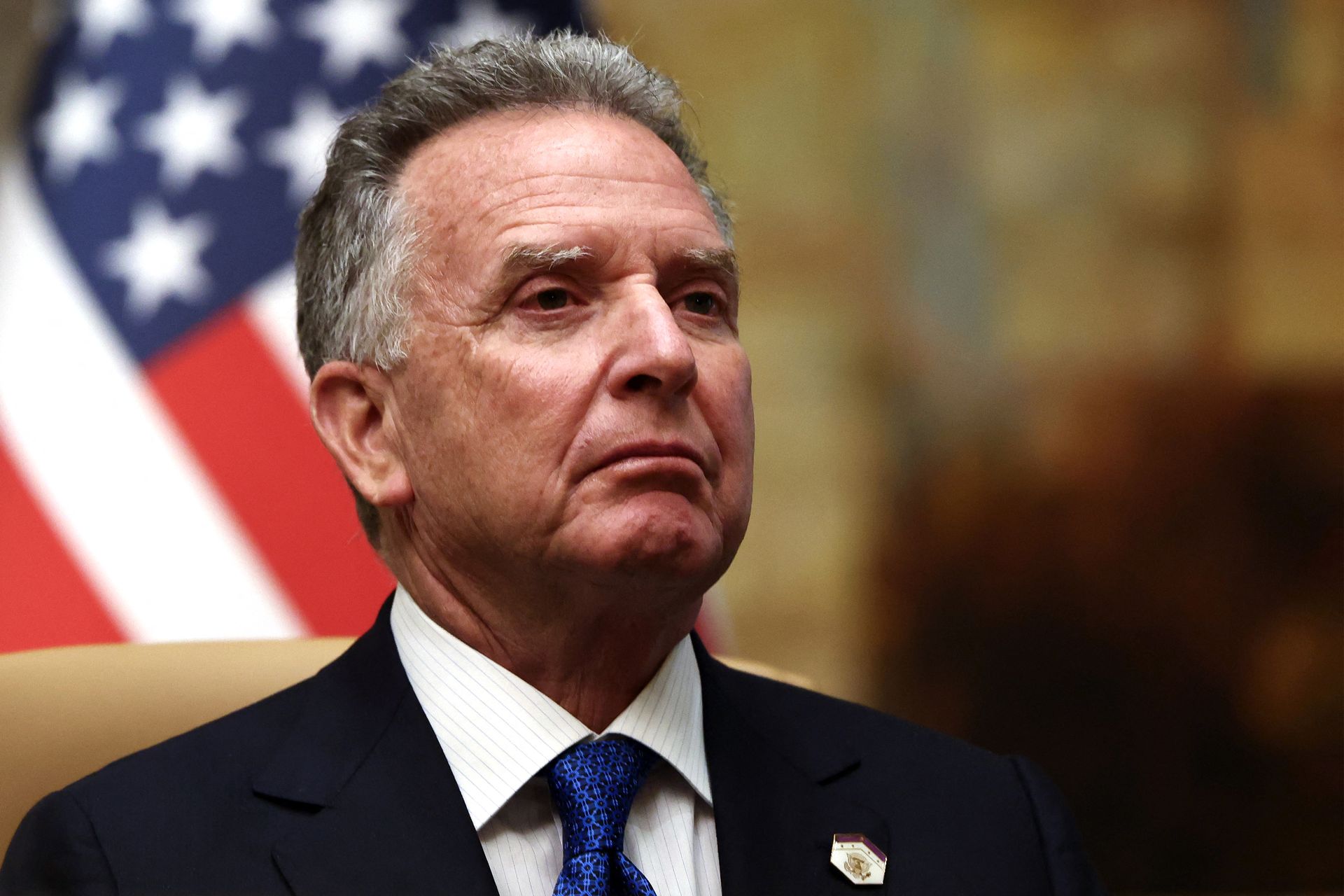The light Ukraine cannot lose: Justice

People gather outside the Ivan Franko Theater to protest against the law that strips Ukraine’s anti-corruption agencies of independence in Kyiv, Ukraine, on July 30, 2025. (Serhii Korovayny / The Kyiv Independent)

Kseniya Kvitka
Assistant Researcher
About the author: Kseniya Kvitka is an assistant researcher with Human Rights Watch’s Europe and Central Asia Division. She is based in Kyiv.
As I sat down to write this, my apartment, like many others in Kyiv, routinely went dark.
My internet router switched to a portable power station, and the laptop continued running on its battery. I reached for the small camper stove we now use to make coffee during long outages.
Russia’s recent attacks on Ukraine’s power infrastructure have brought rolling blackouts back to Kyiv. Our food, our movement, and, more often than not, our mental health are dictated by the schedule of power outages that change depending on the scale of Russia’s latest strikes.
But not everything can be managed as easily as brewing coffee. When the power goes out, elevators stop, leaving people stranded.
My neighbor with a disability, who uses a mobility scooter, can only leave his apartment during the brief windows when electricity is on.
Last Friday, that window lasted three hours in the middle of the day, while the power was out for 18 hours. The same goes for the older woman next door, who relies on a walker and has to plan every errand around the power schedule. District hospitals pause routine procedures whenever the cuts hit.
Our entire lives shrink to fit the few hours of available light.
Despite these difficulties, Ukrainians persevere and have become globally known for their resilience. But behind that facade lies a complicated mixture of exhaustion, emotional fragility, and a thin but persistent hope.
This fragility was palpable just days ago, when Ukraine was shaken by revelations of an alleged embezzlement scheme involving high-level officials close to the president.
The investigation was made public by the very anti-corruption bodies — the National Anti-Corruption Bureau (NABU) and the Specialized Anti-Corruption Prosecutor’s Office (SAPO) — that the government had tried to weaken over the summer. That attempt was reversed only because thousands of Ukrainians took to the streets nationwide.

In the aftermath of this latest corruption scandal, many expected President Volodymyr Zelensky to decisively remove those implicated — the same political figures he once empowered. He did not.
It was in this moment of turmoil, when the societal trust that holds Ukrainians together was most strained, that the United States presented a 28-point peace framework for Ukraine.
The plan demands enormous concessions that could jeopardize Ukraine’s democratic and independent future and any chance for accountability for crimes committed on its territory.
The plan outlines terms for substantial territorial changes and membership in international organizations, such as NATO, while claiming that “Ukraine’s sovereignty will be confirmed.”
One of the most troubling provisions for me was the one about a “full amnesty for actions during the war,” as it can effectively prevent efforts for justice.
Under international law, serious international crimes cannot be subject to amnesties, and such a provision would violate the Ukrainian government’s obligation to investigate and prosecute those crimes.
A political deal that erases these [war] crimes is not a peace plan. It is permission for future atrocities.
For those of us living here, the question was immediate: are we meant to pretend the atrocities never happened? To betray the memory of victims whose families cannot find closure without justice?
War crimes are never abstract. Their victims have names we shouldn’t forget.
Arina Antipenko, 3 years old, killed with her parents in the basement of their Mariupol apartment building when a Russian bomb sliced through it.
Petro Litvin, 67, targeted and killed by a Russian drone while driving his van in his hometown of Kherson.
And thousands more forcibly transferred, tortured, extrajudicially executed, killed, and injured, whose stories Human Rights Watch has documented over these years.
As of October 2025, the United Nations Human Rights Monitoring Mission in Ukraine had verified at least 14,534 civilian deaths and more than 38,472 injuries since the start of Russia’s full-scale invasion in 2022.

A political deal that erases these crimes is not a peace plan. It is permission for future atrocities.
President Zelensky now faces pressure to negotiate the terms of a U.S.-proposed plan to end the war that sidelines justice, as well as domestic pressure to restore trust strained by corruption scandals.
The bitterness of this moment is deepened by the battlefield reality: Russian forces are slowly advancing in Donetsk, Kharkiv, and Zaporizhzhia oblasts, exploiting every gap in Ukraine’s defenses.
At any other time, Ukrainians would be protesting in the streets, as we do when the rule of law is at stake. But wartime protests carry different risks. A misstep could further destabilize a country fighting for survival.
Foreign politicians who call to suspend aid overlook that reality: corruption by a few does not define a nation of millions under attack daily, often at the cost of their lives. These people, and the institutions they rely on, need justice, not abandonment.
On another dark evening, Nov. 22, Ukraine’s Holodomor Remembrance Day, my family lit a candle to honor the millions of Ukrainians who died in the man-made Soviet famine of the 1930s.
For us, that candlelight is both a memory and a promise: that the evil once inflicted will not go unpunished again.
Back then, justice never came.
Today, Ukrainians cannot afford to lose another battle for accountability. As discussions about a possible peace deal unfold, Ukraine and its allies must not betray the small but unwavering candlelight of hope for justice held by thousands of victims of this war.
Editor's Note: The opinions expressed in the op-ed section are those of the authors and do not purport to reflect the views of the Kyiv Independent.










